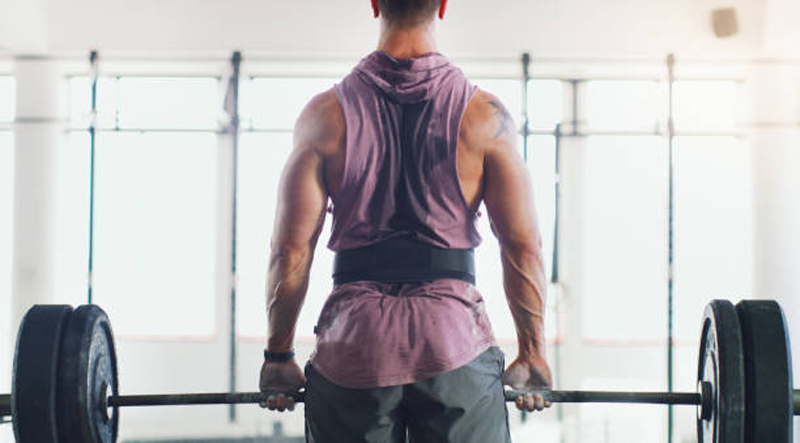Looking to get swole for summer? Of course, you are, that’s why you’re here reading about whether or not testosterone can be increased by working out. Does working out increase testosterone? That’s the million-dollar question and it’s what we’re going to be addressing today. So, picture the scene. You’ve been dieting for months. You’ve eaten more chicken breasts than you ever imagined, you’ve been living off of Tupperware meals and shaker cup beverages and you’ve been killing your workouts in the gym. After endless barbell curls, squats, deadlifts, and bench presses however, you find that, several months later, you’ve barely gained a single pound of weight. But why is that? You know that your diet was on point, and you know that you’ve been training hard because you followed a specially structured workout routine. This tells you that your lack of gains could be due to some other underlying issue. But what? Well, it could be low testosterone levels. Testosterone is essential when it comes to building muscle, but does working out increase testosterone like some people claim, or is that just a bunch of bro-science? Let’s find out, shall we?
What is testosterone?
Testosterone is an androgenic (hormone responsible for sexual characteristics) hormone with anabolic (muscle building) properties. Testosterone is produced primarily within the testes of men, and it is responsible for numerous aspects of health and well-being, including the following:
- Muscle growth
- Muscle repair
- Metabolism
- Bone mass and density
- Libido
- Sperm motility
- Fertility
- Strength
- Energy levels
- Cognitive health
- Mood
- And more…
As you can see, that’s quite the list. Testosterone levels peak in our late teens. By the time we hit the dreaded 3-0 they actually start to decline each year, rather than increase. Some people have naturally higher testosterone levels than others, and some have naturally low testosterone levels. If your testosterone levels diminish too much however, you’ll find yourself dealing with a testosterone deficiency. When this occurs, you run the risk of weight gain in the form of body fat, mood swings, depression, muscle wastage, strength reductions, fatigue, a low libido, difficulty sleeping, brittle bones, infertility, and other negative side effects.
How to boost testosterone naturally
So, from an athletic standpoint, and from the standpoint of being a manly man, the more testosterone you have in your body, you’ll perform better. This is one of the reasons why people choose to use bodybuilding steroids, as they mimic the effects of testosterone. Some steroids are actually variants of the testosterone hormone, with testosterone enanthate, testosterone cypionate, and testosterone propionate all being key examples. If you suffer from a testosterone deficiency, the doctor may prescribe testosterone injections. Athletes also use several testo boosters to increase their testosterone and muscle mass. If your T levels are just a little low, or if you’re just looking to increase them so that you can pile on more muscle mass, there are ways of naturally boosting testosterone. A few great examples include:
Don’t skip leg day – Real bros don’t let other bros skip leg day, and there’s a very good reason for that. Not only will skipping leg day leave you with skinny chicken legs that look ridiculous, it will also potentially negatively impact your testosterone levels. Studies have found that those that regularly train their legs have naturally higher testosterone levels than those that don’t. This is thought to be because leg training helps to stimulate the production of anabolic hormones such as growth hormone and testosterone. The body’s largest muscles are located in the legs and lower body, so the harder you train them, the more anabolic hormones you will produce.
Train with weights – Another great way of boosting testosterone levels naturally is to exercise regularly with free weights rather than focussing purely on cardio. Cardiovascular exercise is beneficial, but for boosting testosterone levels you can’t go wrong with free weights. Studies have found that weight and resistance training work considerably well for people looking to boost their testosterone levels naturally.
Use natural testosterone boosters – Another top tip for naturally boosting testosterone levels is to use natural testosterone boosters. Natural testosterone boosters such as Tribulus Terrestris utilize herbal ingredients which have been proven to increase testosterone levels. Now, don’t get your hopes up, because the increases aren’t dramatic, but they are there and every little helps. If you use these supplements in conjunction with a solid training regime, a healthy diet, and a heathy lifestyle, you’ll soon begin to notice a difference.
Get enough sleep – If you aren’t getting enough sleep at night, your hormones will all be out of whack, especially your testosterone levels. Each night, aim to get between 7 and 9 hours of sleep and be sure to go to bed early and wake up at a reasonable time.
Does working out increase testosterone?
As you will now know if you were paying attention to us earlier on, working out can boost testosterone. Weight training, especially when it includes heavy compounds that focus on the legs, helps to noticeably increase your testosterone levels. Studies have found that weight training temporarily increases testosterone levels for around 15 minutes after a workout has taken place. If however, you train for long periods of time and focus on endurance-based exercise, your testosterone levels may suffer. This is due to the fact that endurance exercise promotes an increase in a stress hormone known as cortisol. Cortisol negatively impacts your body and actually reduces testosterone. Needless to say, that’s the last thing you will want. So, does working out increase testosterone? Well, the answer to that is both yes, and no.

